What is the difference between AS9100 and ISO 9001?
Last Updated on October 13, 2025 by Hafsa J.
What is the difference between AS9100 and ISO 9001?
If you’ve ever explored quality management systems, you’ve probably come across AS9100 and ISO 9001. At first glance, they might seem similar—they both focus on quality, efficiency, and improving processes—but they serve very different purposes. Understanding the difference between AS9100 and ISO 9001 is crucial, especially if your business operates in industries like aerospace, aviation, or defense.
So, what sets them apart? ISO 9001 is the globally recognized standard for quality management, applicable to all industries, from manufacturing to retail. AS9100, on the other hand, takes ISO 9001 to the next level by tailoring it specifically for the aerospace, aviation, and defense sectors. It’s designed to address the unique challenges of these high-risk industries, such as product safety, traceability, and regulatory compliance.
In this article, we’ll break down the difference between AS9100 and ISO 9001 in a way that’s easy to understand. Whether you’re deciding which certification is right for your business or just curious about how they compare, we’ll walk you through everything you need to know. Let’s dive in!
Overview of ISO 9001: The Global Standard for Quality
Let’s start with the basics. ISO 9001 is the world’s most recognized quality management standard, and for good reason—it provides a solid framework for ensuring consistency, improving efficiency, and boosting customer satisfaction. But what exactly does it cover, and how does it relate to the difference between AS9100 and ISO 9001? Let’s unpack it.
What is ISO 9001?
At its core, ISO 9001 is all about creating a system that helps organizations deliver consistent, high-quality products and services. It’s not limited to any one industry or company size—it’s designed to be flexible enough to work for everything from small businesses to multinational corporations.
One of the standout features of ISO 9001 is its focus on risk-based thinking. This means identifying potential risks that could impact quality and putting controls in place to prevent problems before they happen. It’s like having a proactive game plan to ensure things run smoothly.
Key Features of ISO 9001
Here are a few of the most important aspects of ISO 9001 that make it such a widely used standard:
- Customer Focus: Everything revolves around meeting customer needs and expectations. After all, happy customers are the goal, right?
- Process Approach: ISO 9001 encourages organizations to think of their operations as interconnected processes, helping them work more efficiently.
- Continuous Improvement: The standard emphasizes ongoing progress. It’s not just about maintaining quality but constantly looking for ways to do better.
- Leadership Involvement: Strong leadership plays a big role in ensuring the quality management system (QMS) is effective and aligned with organizational goals.
- Plan-Do-Check-Act (PDCA) Cycle: This structured approach ensures that improvements are made systematically by planning changes, implementing them, checking the results, and taking action.
How ISO 9001 Fits Into the Picture
ISO 9001 forms the foundation for many industry-specific standards, including AS9100. While ISO 9001 is broad and flexible, AS9100 builds on it to meet the specialized needs of aerospace and defense industries. This is where we begin to see the difference between AS9100 and ISO 9001—AS9100 takes the general principles of ISO 9001 and adds extra layers of requirements for high-risk environments.
If your business isn’t in a highly regulated industry like aerospace, ISO 9001 may be all you need to manage quality effectively. However, for sectors where safety, traceability, and regulatory compliance are critical, AS9100 becomes the gold standard.
Now that you have a clear understanding of ISO 9001, let’s explore AS9100 and how it raises the bar for quality management in aerospace and defense industries. Stay with me—it’s about to get interesting!
Overview of AS9100: The Aerospace and Defense Standard
Now that we’ve covered ISO 9001, let’s talk about AS9100. If ISO 9001 is the generalist, AS9100 is the specialist—designed specifically for industries like aerospace, aviation, and defense, where safety and precision are critical. Understanding how AS9100 builds on ISO 9001 is key to grasping the difference between AS9100 and ISO 9001.
What is AS9100?
AS9100 is an internationally recognized quality management standard tailored for high-stakes industries. It takes the core principles of ISO 9001 and adds extra requirements to address the unique challenges faced in aerospace and defense.
Think about it—when you’re dealing with things like aircraft manufacturing, space exploration, or military equipment, there’s zero room for error. AS9100 is designed to ensure that every part, process, and procedure meets the highest standards of quality and safety.
Key Features of AS9100
Here’s what sets AS9100 apart and makes it the go-to standard for aerospace and defense:
- Product Safety: AS9100 places a strong emphasis on ensuring that products are safe for their intended use. This includes identifying and managing risks that could compromise safety.
- Counterfeit Parts Prevention: In aerospace and defense, counterfeit parts can be a major risk. AS9100 includes specific requirements to detect, prevent, and address counterfeit or suspect parts.
- Risk Management: While ISO 9001 promotes risk-based thinking, AS9100 takes it further by requiring a more detailed and structured approach to risk management.
- Traceability: For industries like aerospace, it’s crucial to track every component and material back to its origin. AS9100 emphasizes record-keeping and traceability to ensure accountability and compliance.
- Supplier Management: The supply chain plays a critical role in these industries, so AS9100 includes stricter requirements for monitoring and evaluating suppliers to maintain quality across the board.
- Regulatory Compliance: AS9100 helps organizations align with strict regulations specific to aerospace and defense, making it easier to meet both customer and legal requirements.
How AS9100 Raises the Bar
The key difference between AS9100 and ISO 9001 lies in these additional requirements. While ISO 9001 focuses on general quality principles that apply to any industry, AS9100 takes a deeper dive into the specific needs of high-risk environments.
For example, if a supplier provides parts for aircraft, AS9100 ensures that every single component meets rigorous safety and quality standards. This isn’t just about delivering a good product—it’s about protecting lives and maintaining trust in critical industries.
Who Needs AS9100?
If your organization operates in aerospace, aviation, or defense—or even if you’re part of the supply chain supporting these industries—AS9100 is likely the right standard for you. It not only ensures compliance with industry expectations but also demonstrates your commitment to quality, safety, and continuous improvement.
Now that we’ve explored AS9100 and how it builds on ISO 9001, let’s compare the two directly and highlight the specific differences between AS9100 and ISO 9001. Stick with me—it’s about to get even clearer!
The Core Difference Between AS9100 and ISO 9001
So far, we’ve looked at ISO 9001 as the universal standard for quality and AS9100 as the aerospace and defense-focused extension. But what are the key differences between AS9100 and ISO 9001, and why do they matter? Let’s break it down into simple, relatable terms.
1. Industry-Specific Requirements
The most obvious difference between AS9100 and ISO 9001 is the industries they serve. ISO 9001 is broad, covering organizations in any sector—manufacturing, healthcare, education, you name it. In contrast, AS9100 is designed specifically for high-risk fields like aerospace, aviation, and defense.
For example, an aerospace manufacturer needs to meet stringent safety and regulatory requirements that wouldn’t apply to a retail business. AS9100 builds on the ISO 9001 framework but adds specific requirements to address these unique challenges.
Why It Matters:
If you’re in a high-stakes industry, these additional requirements aren’t just helpful—they’re essential for ensuring safety, compliance, and quality.
2. Product Safety and Risk Management
While ISO 9001 emphasizes risk-based thinking, AS9100 takes this to another level. It includes detailed requirements for managing risks related to product safety, counterfeit parts, and regulatory compliance.
For instance, AS9100 requires organizations to assess and mitigate risks at every stage of production, from design to delivery. It also demands a structured approach to identifying and addressing potential hazards that could compromise product safety.
Why It Matters:
In industries like aerospace, even a minor defect can have catastrophic consequences. AS9100’s focus on risk and safety ensures that organizations leave nothing to chance.
3. Traceability and Documentation
ISO 9001 requires documentation, but AS9100 goes further by mandating traceability. This means keeping detailed records of every component, material, and process involved in production.
For example, if a part used in an aircraft fails, AS9100 ensures that you can trace it back to its source to identify and address the issue. This level of traceability is critical for ensuring accountability and maintaining trust in aerospace and defense industries.
Why It Matters:
Traceability helps organizations manage recalls, identify problems quickly, and maintain compliance with strict industry regulations.
4. Supplier Management
Both ISO 9001 and AS9100 emphasize the importance of supplier quality, but AS9100 takes a more rigorous approach. It includes specific requirements for monitoring and evaluating suppliers, ensuring they meet the high standards expected in aerospace and defense.
For example, AS9100 might require you to conduct regular audits of your suppliers or implement stricter controls to prevent counterfeit parts from entering your supply chain.
Why It Matters:
By holding suppliers to a higher standard, AS9100 ensures that quality is maintained throughout the entire production process.
5. Regulatory Compliance
ISO 9001 is designed to be flexible, making it suitable for a wide range of industries. AS9100, on the other hand, is much more focused on compliance with aerospace and defense regulations.
For instance, AS9100 includes requirements that align with regulations from aviation authorities like the FAA (Federal Aviation Administration) or EASA (European Union Aviation Safety Agency).
Why It Matters:
This focus on regulatory compliance makes AS9100 a must-have for organizations working in industries with strict legal and safety requirements.
The Bottom Line
The difference between AS9100 and ISO 9001 boils down to scope and specificity. ISO 9001 provides a solid foundation for quality management that works for any industry. AS9100 builds on that foundation, tailoring it to meet the complex needs of aerospace, aviation, and defense organizations.
If your business operates in a high-stakes environment where safety, traceability, and compliance are critical, AS9100 is the clear choice. For other industries, ISO 9001’s flexibility and general applicability make it an excellent fit.
Next, let’s explore scenarios where you might choose one standard over the other to help you decide which is the best fit for your organization!
When Should You Choose AS9100 Over ISO 9001?
Now that we’ve covered the difference between AS9100 and ISO 9001, you might be wondering which one is right for your organization. The answer largely depends on the industry you’re in and the specific needs of your business. Let’s break it down so you can make the best choice.
Choose AS9100 If You Operate in Aerospace, Aviation, or Defense
AS9100 is specifically designed for businesses in high-stakes industries like aerospace, aviation, and defense. If your organization designs, manufactures, or maintains products for these sectors, AS9100 certification is almost always a must.
For example, if you’re producing parts for aircraft or handling maintenance for aerospace components, AS9100 ensures that your processes meet the stringent safety, quality, and regulatory requirements these industries demand.
Why It’s Important:
- Many aerospace and defense companies require their suppliers to have AS9100 certification.
- It demonstrates that your organization prioritizes safety, risk management, and compliance with industry regulations.
Choose ISO 9001 for General Quality Management
If your business operates outside of aerospace or defense, ISO 9001 might be all you need. It provides a strong foundation for quality management across a wide range of industries, from manufacturing to healthcare to education.
For example, if you run a manufacturing company that produces consumer goods, ISO 9001 helps ensure your processes are consistent and customer-focused without requiring the additional layers of control that AS9100 demands.
Why It’s a Great Fit:
- ISO 9001 is more flexible and easier to implement across different industries.
- It’s a globally recognized standard that demonstrates your commitment to quality.
- It’s perfect for businesses that don’t need the industry-specific requirements of AS9100.
Consider AS9100 If You’re Part of the Aerospace Supply Chain
Even if your company doesn’t directly manufacture aircraft or defense products, AS9100 might still be relevant if you’re part of the aerospace supply chain. Many companies in these industries require their suppliers and partners to hold AS9100 certification.
For instance, if you supply raw materials, electronic components, or software to aerospace manufacturers, AS9100 certification can open doors to new contracts and business opportunities.
Why It Matters:
- It shows that you meet the same high standards as your aerospace customers.
- Certification can make you a preferred supplier for major aerospace and defense companies.
When ISO 9001 is Enough
ISO 9001 is ideal for businesses that:
- Operate in less regulated industries.
- Want a straightforward framework for improving quality and efficiency.
- Don’t need the added focus on risk management, traceability, or supplier controls that AS9100 provides.
For example, if you own a small business that focuses on custom furniture, ISO 9001 gives you a structured way to ensure consistency, meet customer expectations, and improve your operations over time.
Scenarios Where Both Standards May Apply
In some cases, you might find that both standards are relevant to your organization. For instance, if you operate multiple divisions—one focused on general manufacturing and another that serves the aerospace industry—you might choose to implement ISO 9001 for one part of the business and AS9100 for the other.
Pro Tip:
Since AS9100 incorporates all the requirements of ISO 9001, getting certified to AS9100 automatically covers ISO 9001 compliance as well. This can be a great way to demonstrate your versatility and commitment to quality across different industries.
The Takeaway
Deciding between ISO 9001 and AS9100 comes down to your industry, your customers’ expectations, and the level of complexity your quality management system needs. If you’re in aerospace, aviation, or defense, AS9100 is your go-to standard. For all other industries, ISO 9001 offers a flexible, robust framework to improve quality and customer satisfaction.
Next, we’ll dive into how these two standards are connected and explore their shared foundation. Let’s keep this conversation going!
The Relationship Between AS9100 and ISO 9001
Now that we’ve looked at when to choose each standard, let’s talk about how AS9100 and ISO 9001 are connected. After all, AS9100 isn’t a completely separate standard—it actually builds on ISO 9001, which is why understanding the difference between AS9100 and ISO 9001 means understanding their shared foundation.
Let’s break it down and explore how these two standards work together.
AS9100 Builds on ISO 9001
Think of ISO 9001 as the base layer and AS9100 as the upgraded version for aerospace, aviation, and defense industries. AS9100 incorporates all the requirements of ISO 9001, so any organization certified to AS9100 automatically meets ISO 9001 standards. Pretty cool, right?
For example, if ISO 9001 focuses on general quality management principles—like customer satisfaction and process efficiency—AS9100 takes those principles and adds specific requirements for things like risk management, product safety, and traceability.
Why This Matters:
If your business is certified to AS9100, you don’t have to worry about maintaining separate ISO 9001 certification—it’s already included.
While the difference between AS9100 and ISO 9001 lies in their specific requirements, they share some important foundational principles:
- Customer Focus: Both standards emphasize the importance of understanding and meeting customer needs.
- Process Approach: They encourage organizations to view their operations as interconnected processes, leading to more efficient workflows.
- Continuous Improvement: Both standards require organizations to consistently evaluate and enhance their quality management systems.
- Leadership Involvement: Strong leadership is essential in driving quality initiatives, whether under ISO 9001 or AS9100.
These shared principles mean that if you’re familiar with ISO 9001, transitioning to AS9100 might feel like a natural next step if your industry demands it.
Differences in Documentation Requirements
While ISO 9001 requires organizations to maintain documented information to demonstrate compliance, AS9100 goes a step further. It demands additional documentation for aerospace-specific processes, such as:
- Risk management plans.
- Product safety protocols.
- Traceability records for all components and materials.
Why This Matters:
These additional documentation requirements reflect the critical importance of safety and accountability in aerospace and defense. While ISO 9001 provides a strong baseline, AS9100 ensures the level of detail needed to manage high-risk industries.
Certification Process for Both Standards
If you’re pursuing certification, it’s helpful to know that the process for ISO 9001 and AS9100 is quite similar. Both involve:
- Developing and implementing a compliant quality management system.
- Conducting internal audits to identify and address gaps.
- Undergoing a certification audit by a third-party certification body.
The key difference between AS9100 and ISO 9001 during certification is the additional focus areas auditors will review for AS9100, such as supplier management and counterfeit parts prevention.
Pro Tip:
If you’re already certified to ISO 9001 and need to transition to AS9100, the process can be streamlined since much of your existing QMS will already meet the core requirements.
Why Understanding Their Relationship Matters
Understanding the connection between ISO 9001 and AS9100 helps you see the big picture. ISO 9001 provides the foundation for strong quality management, while AS9100 builds on it to meet the specific demands of aerospace and defense. By knowing how they complement each other, you can make informed decisions about which certification best suits your organization’s needs.
Next, let’s talk about some of the key benefits of understanding the difference between AS9100 and ISO 9001 and how this knowledge can help you make better decisions for your business. Onward!
Benefits of Understanding the Difference Between AS9100 and ISO 9001
If you’ve been following along, you now have a solid understanding of the difference between AS9100 and ISO 9001. But why does this knowledge matter? How does understanding these two standards help your business? Whether you’re exploring certifications for the first time or planning to expand your quality management system (QMS), there are some clear advantages to knowing how these standards compare.
1. Better Decision-Making for Your Business
One of the most important reasons to understand the difference between AS9100 and ISO 9001 is to make informed decisions about which certification fits your organization.
If you’re in aerospace, aviation, or defense, AS9100 is the obvious choice. However, for businesses in other industries, ISO 9001 might provide all the structure you need without the added complexity of AS9100.
Why It’s a Benefit:
- You avoid investing time and resources in a certification that doesn’t align with your business needs.
- You gain clarity on how each standard supports your industry goals.
2. Smoother Certification Processes
Understanding the difference between AS9100 and ISO 9001 can also simplify your certification journey. If you’re already familiar with ISO 9001, transitioning to AS9100 becomes much easier because AS9100 builds on the ISO 9001 framework.
For businesses pursuing both certifications, knowing the overlap between them allows you to streamline your implementation processes.
Why It’s a Benefit:
- You save time by focusing on the shared requirements of both standards.
- Your team is better prepared for audits, reducing stress and last-minute scrambling.
3. Improved Communication with Stakeholders
When your customers, suppliers, or partners ask about your certifications, being able to explain the difference between AS9100 and ISO 9001 shows that you truly understand your QMS and the standards that guide it.
For example, if you’re working with an aerospace customer, explaining that your AS9100 certification includes ISO 9001 requirements demonstrates your commitment to quality and safety.
Why It’s a Benefit:
- It builds trust with stakeholders who value transparency and expertise.
- It positions your business as a knowledgeable and reliable partner in your industry.
4. Tailored Quality Management Systems
Another benefit of understanding these standards is that it helps you tailor your QMS to meet your specific needs. ISO 9001 provides a flexible foundation, while AS9100 adds industry-specific layers that enhance safety, risk management, and compliance.
By knowing where the difference between AS9100 and ISO 9001 lies, you can customize your processes to meet the right level of rigor for your business.
Why It’s a Benefit:
- Your QMS aligns more closely with your operational goals.
- You avoid overcomplicating your system with unnecessary requirements.
5. Competitive Advantage
If you’re in the aerospace or defense industry, AS9100 certification is often a requirement to win contracts. Even if it’s not mandatory, having this certification gives you a competitive edge by demonstrating that you meet the highest quality and safety standards.
Similarly, ISO 9001 certification can set you apart in industries where quality management isn’t mandatory but is highly valued.
Why It’s a Benefit:
- You open doors to new business opportunities and contracts.
- You strengthen your reputation as a quality-driven organization.
6. Confidence in Your Quality Management Efforts
Finally, understanding the difference between AS9100 and ISO 9001 boosts your confidence in your quality management decisions. Whether you choose ISO 9001, AS9100, or both, you’ll know that your choice is backed by a clear understanding of your industry’s needs.
Why It’s a Benefit:
- You can confidently explain your certification choices to auditors, customers, and stakeholders.
- You ensure that your QMS aligns with both your industry requirements and your organization’s goals.
Why This Knowledge Matters
In the end, understanding the difference between AS9100 and ISO 9001 isn’t just about meeting standards—it’s about creating a QMS that works for your business, supports your team, and drives continuous improvement.
Next, let’s tackle some frequently asked questions about these certifications to clear up any lingering doubts and help you take the next step with confidence. Let’s keep going!
FAQs About the Difference Between AS9100 and ISO 9001
Got questions? You’re not alone! The difference between AS9100 and ISO 9001 can feel a little overwhelming at first, but it doesn’t have to be. Let’s clear up some of the most common questions people ask when exploring these two quality management standards.
1. Can a company be certified to both AS9100 and ISO 9001?
Absolutely! In fact, this is very common for organizations in the aerospace, aviation, and defense sectors. Since AS9100 includes all the requirements of ISO 9001 (plus some additional ones specific to aerospace), achieving AS9100 certification automatically certifies you to ISO 9001 as well.
Why It’s Helpful:
- It saves time and effort because you’re essentially meeting two standards with one system.
- It shows both general and industry-specific commitment to quality, which can broaden your appeal to customers.
2. Is AS9100 more difficult to implement than ISO 9001?
The short answer is yes, but it’s not impossible. AS9100 has stricter requirements because it’s tailored for industries where safety and precision are critical. For example, AS9100 requires detailed risk management, traceability, and supplier monitoring that go beyond ISO 9001.
How to Approach It:
- If you already have an ISO 9001-compliant quality management system, you’re halfway there!
- Work with a knowledgeable team or consultant who understands the specific requirements of AS9100.
3. What industries benefit most from AS9100 certification?
AS9100 is specifically designed for organizations in aerospace, aviation, and defense. This includes:
- Manufacturers of aircraft, spacecraft, and defense equipment.
- Maintenance, repair, and overhaul (MRO) service providers.
- Suppliers of components, materials, and software for aerospace or defense applications.
If your company operates in one of these industries—or if you’re part of the supply chain that supports them—AS9100 certification is often a requirement.
4. Does ISO 9001 apply to aerospace companies?
Yes, but ISO 9001 alone may not be sufficient for aerospace companies. While ISO 9001 provides an excellent foundation for quality management, it doesn’t address the specific risks, safety requirements, and regulatory expectations of aerospace and defense industries. That’s where AS9100 comes in.
Think of it This Way:
ISO 9001 is a great starting point, but AS9100 fills in the gaps for high-risk, high-regulation industries.
5. What is the cost difference between AS9100 and ISO 9001 certification?
The cost of certification varies depending on factors like the size of your organization, the complexity of your processes, and the certification body you choose. Generally, AS9100 certification is more expensive than ISO 9001 due to its additional requirements and the more detailed audits involved.
Factors That Affect Cost:
- The number of locations and employees.
- The complexity of your supply chain and documentation.
- The level of preparation your organization needs before the audit.
While AS9100 certification may have a higher upfront cost, it’s often a worthwhile investment for businesses in aerospace and defense because it opens up new opportunities and ensures compliance with industry standards.
6. Can a company transition from ISO 9001 to AS9100?
Definitely! In fact, many companies start with ISO 9001 and later upgrade to AS9100 when they expand into aerospace or defense markets. Since AS9100 builds on ISO 9001, much of the work you’ve done for ISO 9001 will carry over.
Steps for Transitioning:
- Conduct a gap analysis to identify what’s missing between your current ISO 9001 system and AS9100 requirements.
- Update your processes, documentation, and training to meet the additional AS9100 standards.
- Work with a certification body experienced in AS9100 audits.
Still Have Questions? Let’s Chat!
Understanding the difference between AS9100 and ISO 9001 can feel like learning a new language, but once you’ve got the basics down, it all starts to make sense. Whether you’re thinking about certification for the first time or exploring an upgrade, knowing how these standards compare puts you in a great position to make the right choice for your business.
Next, let’s wrap things up with some final thoughts and key takeaways to ensure you feel confident moving forward!
Conclusion: Choosing Between AS9100 and ISO 9001
We’ve covered a lot of ground in this article, and by now, you should have a clear understanding of the difference between AS9100 and ISO 9001. While both standards focus on quality management, their scope, requirements, and intended industries set them apart. So, how do you decide which one is right for your business?
Here’s a quick recap to help you make that decision:
ISO 9001: The Flexible All-Rounder
ISO 9001 is the go-to standard for organizations across industries that want to implement a strong quality management system. It’s:
- Broad and adaptable to any sector or business size.
- Perfect for improving customer satisfaction and operational efficiency.
- A great starting point for businesses that don’t require the additional layers of control specific to aerospace or defense.
If you’re outside high-risk industries, ISO 9001 provides all the tools you need to elevate your processes and ensure consistent quality.
AS9100: The Aerospace and Defense Specialist
AS9100, on the other hand, is tailor-made for industries where safety, precision, and compliance are non-negotiable. It’s ideal for:
- Aerospace, aviation, and defense organizations.
- Companies that need to meet strict industry regulations and manage complex supply chains.
- Businesses seeking to stand out as trusted suppliers in high-risk markets.
If you’re in or supporting the aerospace or defense sector, AS9100 isn’t just an option—it’s often a necessity.
What’s the Core Difference?
The difference between AS9100 and ISO 9001 comes down to the industries they serve and the level of detail they require. ISO 9001 provides a strong foundation for quality management, while AS9100 builds on that foundation with additional requirements for safety, risk management, and traceability.
Why Understanding the Difference Matters
Knowing the difference between AS9100 and ISO 9001 empowers you to:
- Choose the right standard for your business needs.
- Streamline your certification process by focusing on the requirements that matter most.
- Communicate your commitment to quality and safety with confidence to customers, stakeholders, and auditors.
Final Takeaway
Both AS9100 and ISO 9001 have their unique strengths, and the right choice depends on your industry and goals. Whichever standard you choose, remember that the ultimate aim is the same: to create a quality management system that drives improvement, builds trust, and delivers value to your customers.
Still unsure which path to take? Start with ISO 9001 if you’re new to quality management—it’s a fantastic foundation. If you’re ready to meet the challenges of aerospace and defense, AS9100 will take your QMS to the next level.
You’ve got this, and no matter which standard you pursue, you’re taking a big step toward a stronger, more efficient organization. Ready to get started? Let’s make quality a priority!
Ready to move from ISO 9001 theory to implementation?
Get the exact tools you need to write your documentation, train your team, map your processes, and pass your audit—without wasted time or guesswork.

make ISO standards less intimidating and more approachable for everyone.
Whether it’s ISO 9001, ISO 22000, or the cosmetics-focused ISO 22716, I’ve spent my career
turning complex jargon into clear, actionable steps that businesses can actually use.
I’m not here to call myself an expert—I prefer “enthusiast” because I truly love what I do.
There’s something incredibly rewarding about helping people navigate food safety and quality management systems
in a way that feels simple, practical, and even enjoyable.
When I’m not writing about standards, you’ll probably find me playing Piano 🎹, connecting with people, or diving into my next big project💫.
I’m an engineer specialized in the food and agricultural industry
I have a Master’s in QHSE management and over 12 years of experience as a Quality Manager
I’ve helped more than 15 companies implement ISO 9001, ISO 22000, ISO 22716, GMP, and other standards
My clients include food producers, cosmetics manufacturers, laboratories, and service companies
I believe quality systems should be simple, useful, and efficient.


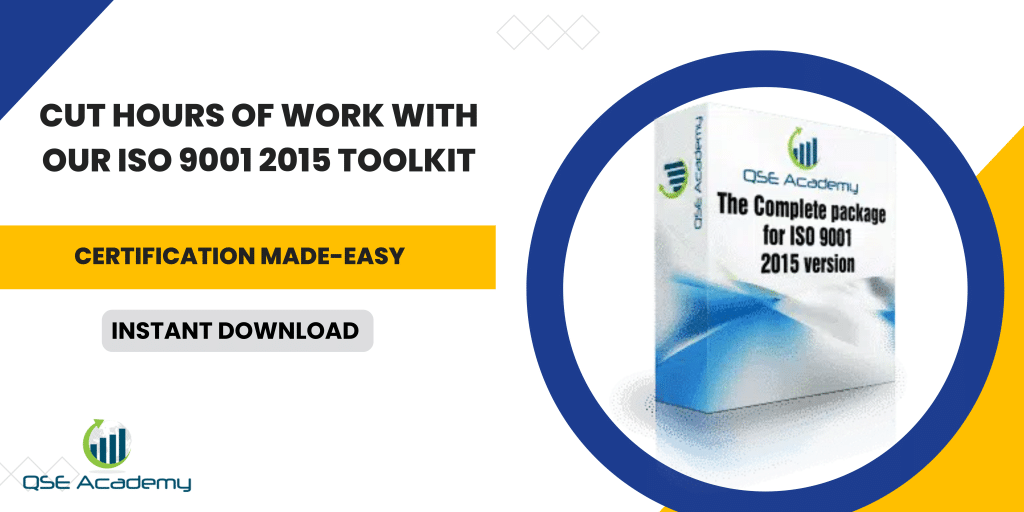


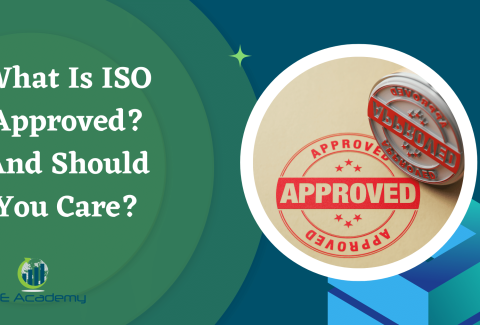
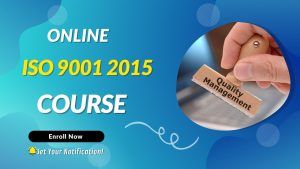
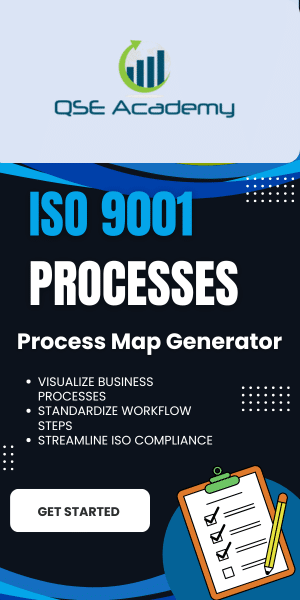




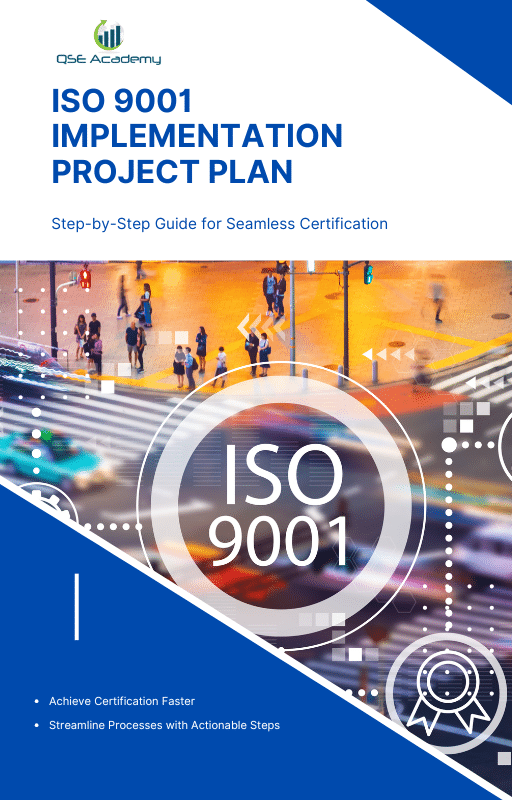
Comment (1)
Hani alghamdi
iso9100
iso9110